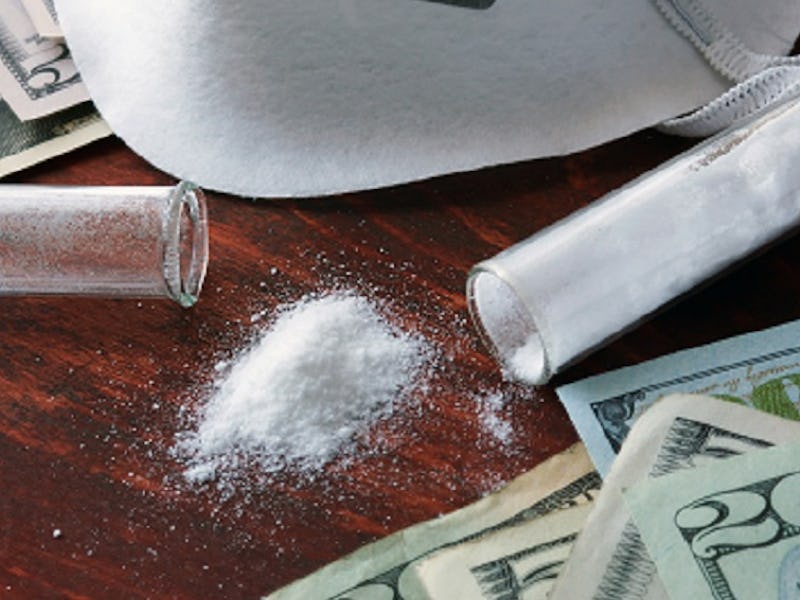Cocaine Addiction Can Be Conquered by a Completely Natural High
Drugs are a 'double whammy insult.'

Cocaine is a powerfully addictive drug, yet there’s no universally approved way to treat cocaine addiction. Several medications designed to treat other diseases show potential for ceasing the urge for blow, and researchers are even developing a “cocaine vaccine,” but those treatments won’t be here any time soon. In the meantime, the scientists behind a recent Behavioral Brain Research study argue, we can treat addiction with an intervention that every person has access to: exercise.
In the study, New York-based scientists present evidence that exercise can prevent relapse into cocaine addiction. When a person is on cocaine, the drug increases levels of brain-dwelling dopamine, a neurotransmitter that helps control the brain’s reward and pleasure centers. The dopamine boost reinforces an individual’s desire for the drug, and prolonged use reduces a person’s ability to feel pleasure from other sources.
It’s also well established that cocaine primes the brain’s stress pathway, causing cocaine users to become hyperactive in stressful situations. When a person tries to quit cocaine, stress becomes an issue because it can easily become a trigger for drug use and relapse. Drugs, study co-author and Albany Medical College postdoctoral researcher Lisa Robison, Ph.D. tells Inverse, are a “kind of double whammy insult.” According to her research, a way to combat that insult is exercise.
Exercise can help with cocaine addiction.
“What’s cool for exercise is that it’s a two-for-one deal!” Robison says. “Exercise has been shown to both improve the functioning of the reward pathway and reduce stress responses. Exercise presents a natural and cost-effective means of combating substance abuse, and has a multitude of other benefits for physical and psychological health.”
In previous work, Robison and her colleagues showed that exercise could alter the mesolimbic reward pathway to repair the damage done by drug use. That reward pathway evolved to reinforce behaviors that promote survival, like eating and creating social bonds. When someone becomes addicted to a drug like cocaine, that reward pathway becomes highjacked.
The scientists further explored the relationship between the reward pathway, cocaine, and exercise by examining the addictive behaviors of cocaine-addicted rats who did or didn’t exercise. The control group of the rats were kept in their cages, where they remained sedentary; the other group, placed on treadmills, essentially went into boot camp. Five days a week for six weeks, those rats ran on the treadmill for an hour.
The team’s analysis showed that the exercising rats were less inclined to seek out cocaine, even when they were stressed and hadn’t had cocaine in a long time. This suggested that exercise could help prevent stress-induced drug relapse and that regular aerobic exercise could be a useful part of a comprehensive cocaine addiction recovery program for humans.
“There has been great work done in human studies showing that physiological and psychological reactions to stress can predict a person’s likelihood to relapse,” says Robison. “We also know that exercise relieves stress and anxiety in humans. So putting this together, in addition to our findings in animal studies, it suggests that reducing stress responses in people with substance use disorders with something like exercise should result in lower relapse rates.”
Interested in exercise science? Then check out this video on the myth of taking 10,000 steps: